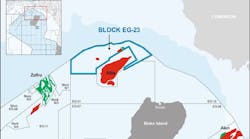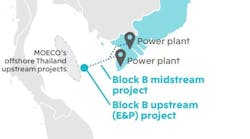Offshore staff
LONDON –Measures announced today in the UK budget will review the potential transfer of ownership of UK fields along with the ability to transfer the benefit of past taxes paid on production to be used for relief in future field decommissioning by the new owners.
At present, operators can claim relief for decommissioning on taxes paid as far as 2002 for Ring Fenced Corporation Tax (RFCT) and Supplementary Charge (SC), and indefinitely for Petroleum Revenue Tax (PRT). In 2013, the government announced Decommissioning Tax Relief Deeds for operators, providing certainty that these reliefs would continue to apply in the future.
Allowing for relief to be transferred in a trade should open up the market, analysts say. At present, a new company coming into an asset will not have any tax position and will face paying for decommissioning without any relief. Yet there is an opportunity for ‘late-life specialists’ that focus on pushing back COP and thereafter handling decommissioning as efficiently as possible.
This new measure is expected to promote further sale of assets and, in turn, extend the production life of older, marginal fields. According to data from Hannon Westwood (HW), it is thought that some 5.8 Bboe of recoverable reserves remain as either producing or yet-to-be-produced in the UK. The UK is a mature province and some 184 fields are currently thought to have less than 10% of their original reserve estimate remaining, and this increases to 228 if 29 fields with less than <20% are included (out of 297 producing assets tracked by HW).
In the latestWestern Europe Decommissioning Market Forecast, published this week by Douglas-Westwood, the UK decommissioning spend is forecast to total £47 billion over the 2017-2040 period, with over 300 platform removals and thousands of wells permanently plugged and abandoned. It is thought that around 50% of the overall UK spend will be borne by the taxpayer, implying a liability of nearly £23 billion.
Industry experts contend that there is a clear incentive for the UK to prolong field life, not just to delay the costs of abandonment, but also to ensure that infrastructure remains in place to allow marginal field development in the future, for example, by means of subsea tiebacks to existing platforms and pipeline export routes.
Other industry observers supported the move. Derek Leith, EY Partner and head of oil and gas tax, said that: “Tax relief for decommissioning expenditure is a critical issue for the oil and gas industry, and HM Treasury’s announcement that a panel is to be set up to consider specific aspects of the relief mechanism will be welcomed.”
Leith continued: “It is often said that the right assets need to be in the right hands to maximize economic recovery late in the life of the North Sea. Any hindrance to new investors being able to obtain effective tax relief for decommissioning costs may create a barrier to entry for those who want to invest in the future of the basin. Changes that remove such barriers can only be positive for the industry and the associated supply chain. While this announcement is a clear indication that HM Treasury understands the significance of this issue, much hard work lies ahead to prove the case for change and identify a satisfactory solution that does not increase the Exchequer’s exposure to decommissioning.”
03/08/2017




